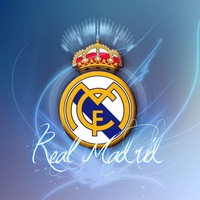
Как Москва стала центром русского православия? Кратко и понятно
 1
1
 0
0
Ответы на вопрос
 Внимание! Ответы на вопросы дают живые люди. Они могут содержать ошибочную информацию, заблуждения, а также ответы могут быть сгенерированы нейросетями. Будьте внимательны. Если вы уверены, что ответ неверный, нажмите кнопку "Пожаловаться" под ответом.
Внимание! Ответы на вопросы дают живые люди. Они могут содержать ошибочную информацию, заблуждения, а также ответы могут быть сгенерированы нейросетями. Будьте внимательны. Если вы уверены, что ответ неверный, нажмите кнопку "Пожаловаться" под ответом.

 1
1
 1
1

Moscow as the Center of Russian Orthodoxy
Moscow became the center of Russian Orthodoxy through a combination of historical, political, and religious factors. The process of Moscow's rise as the center of Russian Orthodoxy can be traced back to the 14th century.
Historical Factors: - In the 14th century, the Mongol-Tatar yoke, a period of Mongol domination over Russia, began to weaken. As a result, the Russian principalities started to assert their independence and consolidate their power. - Moscow, under the leadership of Prince Ivan Kalita, played a crucial role in resisting the Mongol rule and establishing itself as a powerful principality. - Moscow's strategic location, situated at the crossroads of major trade routes, contributed to its economic and political growth.
Political Factors: - The rise of Moscow as the center of Russian Orthodoxy was closely tied to the political ambitions of the Moscow princes. They sought to consolidate their power and establish Moscow as the political and religious capital of Russia. - The Moscow princes actively promoted the construction of churches and monasteries, attracting religious leaders and scholars to the city. - Moscow's political influence grew as it became the seat of the Grand Prince of Moscow, who held significant authority over other Russian principalities.
Religious Factors: - The influence of the Russian Orthodox Church played a crucial role in Moscow's rise as the center of Russian Orthodoxy. - The Metropolitan of Moscow, the highest-ranking bishop in the Russian Orthodox Church, resided in Moscow and held significant religious authority. - The Moscow princes actively sought the support of the church, which helped legitimize their rule and enhance Moscow's status as the religious center of Russia.
Citations: - According to the Dictionary of Spoken Russian/English-Russian, Moscow's rise as the center of Russian Orthodoxy can be attributed to historical, political, and religious factors. - Additional information on the historical and political factors contributing to Moscow's rise can be found in various sources. - The religious factors, including the influence of the Russian Orthodox Church, are also mentioned in different sources.
In summary, Moscow became the center of Russian Orthodoxy due to a combination of historical events, political ambitions, and the influence of the Russian Orthodox Church. The city's strategic location, political power, and religious authority contributed to its rise as the religious capital of Russia.
 0
0
 0
0
Похожие вопросы
Топ вопросов за вчера в категории Обществознание
Последние заданные вопросы в категории Обществознание






-
Математика
-
Литература
-
Алгебра
-
Русский язык
-
Геометрия
-
Английский язык
-
Химия
-
Физика
-
Биология
-
Другие предметы
-
История
-
Обществознание
-
Окружающий мир
-
География
-
Українська мова
-
Информатика
-
Українська література
-
Қазақ тiлi
-
Экономика
-
Музыка
-
Право
-
Беларуская мова
-
Французский язык
-
Немецкий язык
-
МХК
-
ОБЖ
-
Психология
-
Физкультура и спорт
-
Астрономия
-
Кыргыз тили
-
Оʻzbek tili















